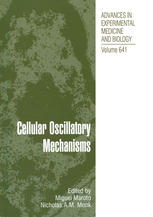

Most ebook files are in PDF format, so you can easily read them using various software such as Foxit Reader or directly on the Google Chrome browser.
Some ebook files are released by publishers in other formats such as .awz, .mobi, .epub, .fb2, etc. You may need to install specific software to read these formats on mobile/PC, such as Calibre.
Please read the tutorial at this link: https://ebookbell.com/faq
We offer FREE conversion to the popular formats you request; however, this may take some time. Therefore, right after payment, please email us, and we will try to provide the service as quickly as possible.
For some exceptional file formats or broken links (if any), please refrain from opening any disputes. Instead, email us first, and we will try to assist within a maximum of 6 hours.
EbookBell Team

4.4
82 reviewsMIGUEL MAROTO, PhD, is a MRC Career Development Fellow and Lecturer at the University of Dundee, UK. He received his PhD in Biochemistry and Molecular Biology from the Department of Biochemistry of the Universidad Autonoma of Madrid, Spain. His research interests include investigating the biochemical basis of different signalling mechanisms implicated in the acquisition of specific cell fates during vertebrate development. During the last years he has been implicated in the analysis of the mechanism of the molecular clock involved in the control of the process of somitogenesis.
NICK MONK, PhD, is an Associate Professor and Reader in Applied Mathematics at the University of Nottingham, UK. Having received his Ph.D. in theoretical physics from the University of London, his research changed focus to centre on the mathematical and computational modelling of biological systems. Particular areas of interest include pattern formation, developmental biology, complex network dynamics and mechanisms of intercellular signalling.